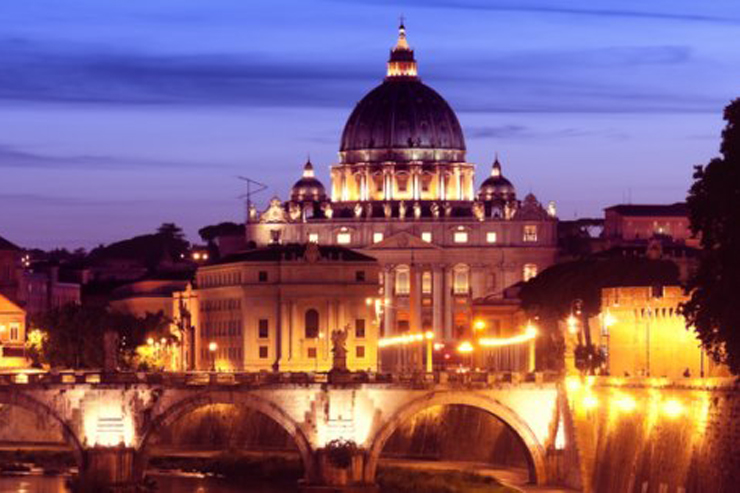 Australian aborigines have a most imaginative myth that speaks to both the importance and to the elusiveness of laughter. They envisioned a Giant Frog who had swallowed all the waters of the world. Since life cannot continue without water, a dire predicament had been created. The only solution lay in making the Frog laugh, an action that would cause him to release the waters. One by one various animals passed by attempting to provoke a laugh. Neither monkeys, nor kangaroos, nor hyenas, nor, we must presume, Tasmanian Devils, could cause the Frog to erupt into laughter. At last an eel paraded by who stood delicately balanced on its tail. The Giant Frog’s uproarious laughter flooded the world. Life was allowed to resume.
Australian aborigines have a most imaginative myth that speaks to both the importance and to the elusiveness of laughter. They envisioned a Giant Frog who had swallowed all the waters of the world. Since life cannot continue without water, a dire predicament had been created. The only solution lay in making the Frog laugh, an action that would cause him to release the waters. One by one various animals passed by attempting to provoke a laugh. Neither monkeys, nor kangaroos, nor hyenas, nor, we must presume, Tasmanian Devils, could cause the Frog to erupt into laughter. At last an eel paraded by who stood delicately balanced on its tail. The Giant Frog’s uproarious laughter flooded the world. Life was allowed to resume.
Without laughter, life, indeed, can become arid, dull, and tasteless as dust. Laughter is explosive, re-generating, health-giving. The aborigines knew this instinctively and this is why they created the ingenious myth of a Giant Frog producing a Deluge of life-affirming laughter.
It was this same slippery species that amused an urban sophisticate, Ogden Nash to write a short poem in its honor: “I don’t mind eels/Except at meals–/And the way they feels.” Humor is remarkably free of ethnic boundaries.
Why do we laugh? Life can wear people down. When it becomes too heavy, we need to counteract gravity with levity. Laughter unlocks, though only momentarily, the chains of responsibility. It lifts us from the weightiness of life. “Man laughs because he has a soul,” wrote Bishop Fulton J. Sheen, “hence, the more spiritual a person is, the more enjoyment there is in [his] life. In this sense, humor is closely related to faith; it bids us not to take anything too seriously.”
And this is why we have a continuing need for humorists, comics, clowns, punsters, jugglers, and acrobats. We need the occasional reprieve from life’s pressures. Yet we love laughing, not only because of this reprieve, but also because it intimates that one day we will enjoy a permanent victory over heaviness. “Angels can fly,” said, G. K. Chesterton, “because they take themselves lightly.”
In King Lear, Shakespeare states: “The gods are just, and of our pleasant vices make instruments to plague us.” This is a most elegant and trenchant phrase. However, there is decidedly nothing funny about it. Groucho Marx said essentially the same thing in ten fewer words and people laughed: “Time wounds all heels.” By transposing “heals” and “wounds” and then playing on the equivocation of “heals” and “heels”, the result is something that induces laughter. “Time heals all wounds” is popular; “time wounds all heels” is jocular. The latter rests on a parody and a pun, and still makes a point. In fact, its point becomes even more pointed. “Give him an inch and he thinks he’s a ruler” is based on a pun, but it is also an amusing way of rebuking the greedy.
Humor conjoins the unexpected with the delightfully improbable. We think we are making the predictable journey from A to B and suddenly find ourselves on the Road to Utopia or sailing to Byzantium or flying to the moon. Humor is serendipitous, like The Three Princes of Serendip who, by chance, found something more valuable than what they originally sought.
The highly regarded comedian Fred Allen told of a scarecrow that was so menacing that the crows returned the corn they had stolen two years ago. We do not expect crows to be frightened thusly, or to have delicate consciences, or to make restitution. He also tells of a town in Maine that was so dull that one day the tide went out and never came back. Likewise, it is most amusing to invest a tide with enough sense not to return to a boring town. Then there is the fellow who could trace his family tree all the way back to the days when his family lived in it (was Darwin right?).
Laughter not only spans time and place, but the span of one’s lifetime. Children laugh long before they can talk. Consider the following quatrain composed by a fourteen-year-old boy:
Each time that I pass by a church,
I stop to make a visit,
So that when I am carried in
Our Lord won’t say, “Who is it?”
Old people can laugh long after they can no longer sing. They can still laugh despite their multitudinous aches and pains: “When your memory goes, forget it.” And even a dog laughed at the spectacle of a cow jumping over the moon. St. Thomas Aquinas saw “laughter of the field made beautiful by flowers.” He also saw “the laughter which makes the countenance of man beautiful.”
We need the disciples of the Giant Frog to keep us inundated with laughter. For this curious convulsion is good both for soul and body, and for mind and heart. Scientists who have investigated the effects of laughter find a correlation between levity and longevity. This should not be surprising. He who laughs, lasts. Life may not always be a laughing matter, but laughter means that there is something else that matters.
Please help us in our mission to assist readers to integrate their Catholic faith, family and work. Tell your family and friends about this article using both the Recommend and Share buttons below and via email. We value your comments and encourage you to leave your thoughts below. Thank you! – The Editors













